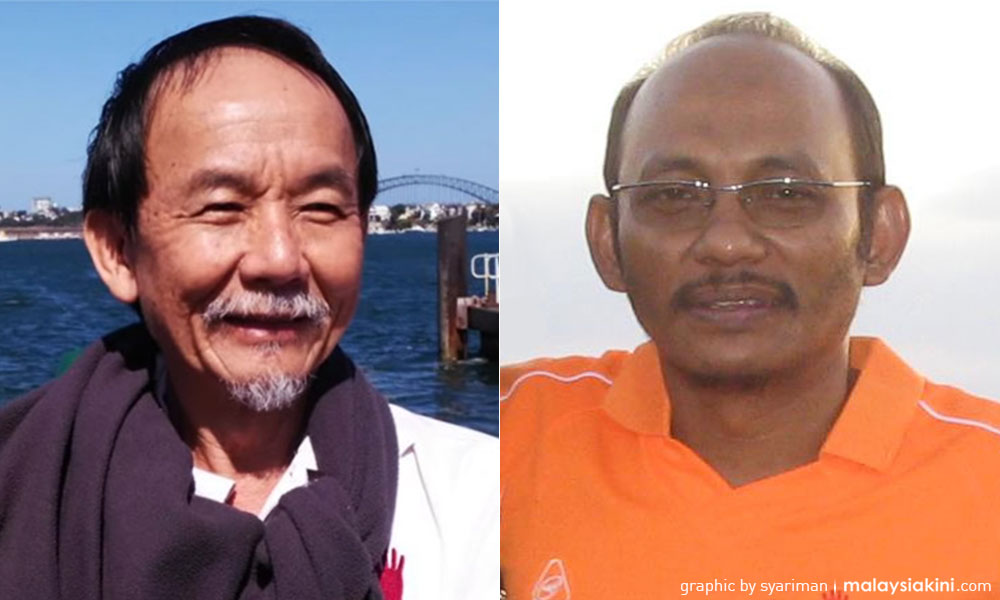Recently, Malaysiakini reported Malaysians Against Death Penalty and Torture (Madpet) urging the government to promptly legislate a special law criminalising enforced disappearance.
What is enforced disappearance? According to the United Nations Human Rights Council (UNHRC), an enforced disappearance entails any form of arrest, detention, abduction or any deprivation of liberty by agents of the state or by persons or groups of persons acting with the authorisation, support or acquiescence of the state.
Such a state action is invariably followed by a refusal to acknowledge the deprivation of liberty or by concealment of the fate or whereabouts of the disappeared person, which places such a person outside the protection of the law.
Such an interpretation can also be found in Article 2 of the International Convention for the Protection of All Persons from Enforced Disappearance (ICPPED) and in the preamble of the Declaration on the Protection of all Persons from Enforced Disappearance.
Under international criminal law, enforced disappearance is considered a crime against humanity.
International law experts argue that in order to constitute enforced disappearance, at least three cumulative elements ought to be present.
They are deprivation of liberty against the will of the person, the involvement of government officials (at least by acquiescence) and finally, refusal to acknowledge the deprivation of liberty or concealment of the fate or whereabouts of the disappeared person.

Though the scourge of enforced disappearance is still not considered a widespread phenomenon in Malaysia, the disappearance of Raymond Koh, Amri Che Mat, Joshua Hilmy, and Ruth Sitepu, however, has become a source of deep concern among many.
Earlier, Suhakam had concluded that no state agents were involved in Joshua and Ruth’s disappearance and the human rights body decided the couple were “abducted by a person or persons unknown”.
Nevertheless, in 2019, Suhakam held that Koh and Amri's abduction were categorised as enforced disappearances, perpetrated by Bukit Aman’s Special Branch.
To our chagrin, the implicated culprits have not been brought to book yet.

With the absence of any criminal action being taken by the state against the alleged culprits, Koh and Amri’s families have no other options but to file a civil court action to compel the authorities to divulge the two victims’ whereabouts.
Needless to say, the families of victims of enforced disappearance anywhere in the world, including in Malaysia, definitely require closure.
They have the right to know whether their loved ones are still alive or dead, and what truly transpired.
With the absence of any specific law dealing with the issue of enforced disappearance in Malaysia, it seems there is no legal duty for the relevant government agency to disclose such vital information.
Perhaps, the government may still have a moral duty to duly inform the aforementioned families but such a duty is not enforceable under the law.
Emulate our neighbours
Be that as it may, perhaps Malaysia should emulate its Asean neighbours Thailand and the Philippines. Thailand enacted the Prevention and Suppression of Torture and Enforced Disappearance Act, which came into force on Feb 22 last year.
Having enacted the said law, Thailand, to its credit, also undertook its international obligation by depositing an instrument of ratification to ICPPED on May 14 this year, which came into effect on June 13.
As far as the Philippines is concerned, despite the promulgation of an Anti-Enforced Disappearance Law, the country has yet to become a state party or a signatory to the ICPPED.
However, the absence of such a ratification does not bar the country from having domestic legislation dealing with the scourge of enforced disappearance.
It shows that what is really needed is a political will.
So far, Malaysia has not signed let alone ratified the ICPPED. It has not enacted any law dealing with enforced appearance either.
It is hoped that the menace of enforced appearance would not haunt any Malaysians forever in the absence of such a law. - Mkini
MOHAMED HANIPA MAIDIN is a former deputy de facto law minister.
The views expressed here are those of the author/contributor and do not necessarily represent the views of MMKtT.




No comments:
Post a Comment
Note: Only a member of this blog may post a comment.